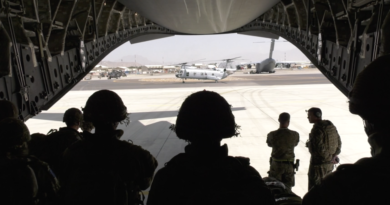Permanent structured cooperation, according to Belgium
(BRUSSELS2) While permanent structured cooperation (PESCO) has not yet taken off within the framework of the Lisbon Treaty, discussions are going well. And opinions are divided. Thus Belgium has made its position known to its European partners. A rather ambitious position but which does not meet with unanimity.
Here are the key ideas of this paper that I was able to browse (in Dutch please!). It is interesting because it illustrates both the different fault lines that currently exist but also the possibilities of an agreement.
Belgium thus defends the original spirit of PESCO: capabilities and operations, military, unique. But it defines fairly flexible entry criteria; the main element being the "inclusiveness" of PESCO and its progressiveness.
An "orthodox" definition of Permanent Structured Cooperation
• Permanent structured cooperation should not be limited to a core of a few countries (an elitist vanguard); a two-speed Defense Europe must be avoided. It must be open to as many Member States as possible. But its level of ambition must be high.
• PESCO must have a dual approach: development of military capabilities and operational capabilities.
• PESCO must remain focused on a military approach; Belgium thus considers that it is still too early for "a full integration of the civil and military aspects".
• The CSP must also be unique and permanent. In other words, for Belgian paper, "there is only one CSP". This does not prevent Member States from continuing to set up other forms of cooperation outside the institutional framework of the EU in areas which do not fall within the competence of the EU. It is not necessary to integrate all these forms of cooperation into PESCO. This also does not prevent designing several "pillars" within this single CSP.
• CSP is a process. It must lead to an improvement in defense capabilities (including weapons and Research & Development) with specific objectives within an agreed timeframe and not just reflect the current state of affairs. Condition that is reflected in the choice of criteria.
“Dynamic” criteria
• Criteria should focus on current or future outcomes. It is necessary to rely more on the skills acquired than on the existing one.
• There must be progressiveness of the criteria, over time. With the current economic outlook and the fragmented defense effort, countries cannot be expected to meet too "strict" criteria. Belgium therefore pleads for membership criteria to evolve over time.
• Emphasis should be placed on the development of standards (standardization) - given the significant gap in the area of operational capabilities and performance. This is a necessary condition for effective collaboration. The criteria must also take into account funding for missions, capabilities offered to the EU and participation in the agency's multinational projects.
• Criteria must not run counter to NATO commitments.
• Within each of the "pillars" of the single PESCO, objectives will have to be defined which will be the result of negotiations between the willing States. Only States that meet a number of criteria given for each area will be able to participate. For capacities, the Capacity Development Plan (of the Agency) should be the reference. It is "the instrument par excellence for the development of European capabilities". The update scheduled for 2010 should allow consistency with the CSP.
• PESCO should confirm the role of the European Defense Agency which has, according to article 3 of the protocol, a (limited) role in PESCO, in particular the annual review of participating states in terms of capabilities. This reporting function is not binding. but this role still needs to be defined. The Board of Directors of the Agency in its Ministers of Defense format must be considered as the executive committee of the PESCO.
(Nicolas Gros-Verheyde)

Comments closed.